- Home
- L. Frank Baum
Aunt Jane's Nieces at Work Page 2
Aunt Jane's Nieces at Work Read online
Page 2
CHAPTER II
THE ARTIST
To most people the great rambling mansion at Elmhurst, with its amplegrounds and profusion of flowers and shrubbery, would afford endlessdelight. But Kenneth Forbes, the youthful proprietor, was at timesdreadfully bored by the loneliness of it all, though no one could betterhave appreciated the beauties of his fine estate.
The town, an insignificant village, was five miles distant, andsurrounding the mansion were many broad acres which rather isolated itfrom its neighbors. Moreover, Elmhurst was the one important estate inthe county, and the simple, hard-working farmers in its vicinityconsidered, justly enough, that the owner was wholly out of their class.
This was not the owner's fault, and Kenneth had brooded upon the matteruntil he had come to regard it as a distinct misfortune. For it isolatedhim and deprived him of any social intercourse with his neighbors.
The boy had come to live at Elmhurst when he was a mere child, but onlyas a dependent upon the charities of Aunt Jane, who had accepted thecharge of the orphan because he was a nephew of her dead lover, who hadbequeathed her his estate of Elmhurst. Aunt Jane was Kenneth's auntmerely in name, since she had never even married the uncle to whom shehad been betrothed, and who had been killed in an accident before theboy was born.
She was an irritable old woman, as Kenneth knew her, and had never shownhim any love or consideration. He grew up in a secluded corner of thegreat house, tended merely by servants and suffered to play in thosequarters of the ample grounds which Aunt Jane did not herself visit. Theneglect which Kenneth had suffered and his lonely life had influencedthe youth's temperament, and he was far from being an agreeablecompanion at the time Aunt Jane summoned her three nieces to Elmhurst inorder to choose one of them as her heiress. These girls, bright, cheeryand wholesome as they were, penetrated the boy's reserve and drew himout of his misanthropic moods. They discovered that he had remarkabletalent as an artist, and encouraged him to draw and paint, something hehad long loved to do in secret.
Then came the great surprise of the boy's life, which changed hiscondition from one of dependency into affluence. Aunt Jane died and itwas discovered that she had no right to transfer the estate to one ofher nieces, because by the terms of his uncle's deed to her the propertyreverted on her death to Kenneth himself. Louise Merrick, Beth DeGrafand Patsy Doyle, the three nieces, were really glad that the boyinherited Elmhurst, and returned to their eastern homes with the mostcordial friendship existing between them all.
Kenneth was left the master of Elmhurst and possessor of considerablewealth besides, and at first he could scarcely realize his good fortuneor decide how to take advantage of it. He had one good and helpfulfriend, an old lawyer named Watson, who had not only been a friend ofhis uncle, and the confidant of Aunt Jane for years, but had taken aninterest in the lonely boy and had done his best to make his lifebrighter and happier.
When Kenneth became a landed proprietor Mr. Watson was appointed hisguardian, and the genial old lawyer abandoned the practice of law andhenceforth devoted himself to his ward's welfare and service.
They made a trip to Europe together, where Kenneth studied the picturesof the old masters and obtained instruction from some of the foremostliving artists of the old world.
It was while they were abroad, a year before the time of this story,that the boy met Aunt Jane's three nieces again. They were "doing"Europe in company with a wealthy bachelor uncle, John Merrick, agenerous, kind-hearted and simple-minded old gentleman who had taken thegirls "under his wing," as he expressed it, and had really provided fortheir worldly welfare better than Aunt Jane, his sister, could havedone.
This "Uncle John" was indeed a whimsical character, as the reader willpresently perceive. Becoming a millionaire "against his will," as hedeclared, he had learned to know his nieces late in life, and found intheir society so much to enjoy that he was now wholly devoted to theirinterests. His one friend was Major Doyle, Patsy's father, a dignifiedbut agreeable old Irish gentleman who amused Uncle John nearly as muchas the girls delighted him. The Major managed John Merrick's financialaffairs, leaving the old millionaire free to do as he pleased.
So he took the girls to Europe, and the four had a fine, adventuroustrip, as may be imagined. Kenneth and Mr. Watson met them in Sicily, andafterward in the Italian cities, and the friendship already existingbetween the young people was more firmly cemented than before.
In the spring Kenneth returned with his guardian to Elmhurst, where hedevoted himself largely to painting from the sketches he had madeabroad, while Mr. Watson sat beside him comfortably smoking his pipe andreading his favorite authors. The elder man was contented enough in hiscondition, but the boy grew restless and impatient, and longed forsocial intercourse. His nature was moody and he had a tendency to broodif left much to himself.
Uncle John had carried his nieces to a farm at Millville, in theAdirondack region, for the summer, so that Kenneth heard but seldom fromhis friends.
Such was the disposition of the characters when our story opens.
Kenneth Forbes, although I have called him a boy, had attained hismajority on the fifteenth day of May. At this time Mr. Watson renderedhis accounts and turned over the estate to its owner. He would then haveretired, but Kenneth would not let him go. Twenty-one years of agesounds mature, but the owner of Elmhurst was as boyish and inexperiencedas it is possible for one twenty-one years old to be. He had grownaccustomed, moreover, to depend much on Mr. Watson's legal acumen in themanagement of his affairs, and would have been embarrassed andbewildered if obliged to shoulder the burden all at once.
The lawyer, who had always had an affection for the young man, perceivedthis clearly; so an arrangement was made that he should remain with hisyoung friend indefinitely and strive to teach him such elements ofbusiness as would enable him in time to attend to his extensiveinterests understandingly and wisely.
The country around Elmhurst is thickly settled with agriculturists, forthe farms are rich and productive in that part of the state. But it isnot a flat country, and Nature has given it many pretty woodland gladesand rocky glens to add to its charm.
From the hill country at the west came several rushing streams whichtumbled along rocky paths to the river nine miles below Elmhurst, andthere are scenes along these routes that might well delight the eye ofan artist. Kenneth had often wandered into these out-of-the-way placeswhen a half-forgotten, neglected lad, but had not visited them foryears. Now, however, with the spirit of loneliness upon him, he suddenlythought of a glen that would make an interesting study for a picture; soone morning he mounted his horse and rode away to pay the place apreliminary visit.
The farmers along the road nodded at the young fellow good-naturedly ashe passed them. Everyone knew him well by sight, yet Kenneth could nothave named many of his neighbors, having held little intercourse withthem. It struck him, this morning, that they had little cause to beinterested in him. He had been an unsociable lad, and since he hadbecome master of Elmhurst had done little to cultivate acquaintance withthe people who lived around him.
One reason for this was that they held little in common with him. Theneighboring farmers were honest, thrifty souls, and among them were manyboth shrewd and thoughtful; but they naturally would not forcethemselves upon the society of the one really rich man in theircommunity, especially as that man had shown no desire to know them.
Kenneth was the subject of much speculation among them, and opinionswidely differed concerning his character. Some called him a "prig" anddeclared that he was "stuck up" and conceited. Others said he was a"namby-pamby" without brains or wit. But there were a few who hadoccasionally talked with the boy, who understood him better, and hintedthat he might develop into "quite a man" in time.
Kenneth surprised himself this morning by greeting several of hisneighbors with unusual cordiality. He even stopped a man who was drivingalong the highway to inquire about his horse, which he perceived wasvery lame. The boy knew something about horses and suggested a method o
ftreatment that he thought would help the nag; a suggestion the farmerreceived with real gratitude.
This simple incident cheered Kenneth more than you might suppose, and hewas actually whistling as he rode through the glen, where the countryroad wound its way beside the noisy, rushing stream.
Pausing in front of the picturesque "table rock" that he had come toinspect, the boy uttered an exclamation of chagrin and disappointment.Painted broadly upon the face of the rock, in great white letters, wasthe advertisement of a patent medicine. The beauty of the scene wasruined--only the glaring advertisement caught and held the eye of theobserver.
At first Kenneth's mind held only a feeling of disgust that such adesecration of Nature's gifts to humanity should be allowed. Then heremembered another place further along the glen which was almost aspretty as this had been before the defiling brush of the advertiser hadruined it. So he spurred his horse and rode up the winding way to thespot. There a red-lettered announcement of "Simpson's Soap" stared himin the face.
This was too much for his temper, and his disappointment quickly turnedto resentment. While he sat on his mare, considering the matter, the manwith the lame horse, whom he had passed, overtook him.
"Can you tell me," Kenneth asked, "who owns this property?"
"Why, I do," replied the man, reining up.
"And you permitted these vile signs to be painted on the rocks?"demanded the boy angrily.
"O' course," replied the man, with a grin of amusement. "I can't farmthe rocks, can I? An' these 'ere signs pays me ten dollars a year,each."
Kenneth groaned.
"I'll give you fifteen dollars a year each if you'll let me wash off theletters and restore the scene to its original beauty," he declared.
"I'm willin'," was the response. "But ye see they're contracted. I'd gitinto trouble with the sign-painter."
"Who is he?"
"Lives in Cleveland. I've got his name up t' th' house, if you'll comealong. He comes up here every spring and paints fences an' rocks, payin'spot cash fer th' privilege."
"Oh, I see."
"Then he contracts with the soap man an' the medicine man to paint uptheir ads. You're the young 'un from Elmhurst, ain't ye?"
"Yes."
"Well, I'd like to earn that extra five, well enough. My name's Parsons.I've got three signs let on my property in the glen. Ef ye'll jest rideup t' the house I'll giv' ye the feller's name."
"All right. Come along," said Kenneth, with sudden resolve.
The farmer rode a time in silent thought. He could not go fast, for thebeast was very lame. Finally he remarked:
"Ef ye buy up the sign painters, so's ye can wash off the letters, likeenough ye'll hev to pay him fer th' paint an' paintin', too."
"I don't mind," was the response.
The farmer chuckled. Here was an interesting adventure, for a fact. Whaton earth could possess the "young 'un" from Elmhurst to object to signs,and be willing to pay for having them erased?
"Like enough ye'll hev to pay back the money the soap an' medicine menguv th' painter, too," he hazarded.
"Like enough," said Kenneth, grimly.
One of his stubborn moods had seized him. At all hazards he was resolvedto eliminate those ugly signs.
He got the name of the sign painter, accepted a glass of buttermilk atthe farm house, and then rode slowly home by another route, so that hemight not have to face the signs again.
But on this route he saw even more. They were painted on the fences andbarns as he passed along. He scowled at each one, but they did notappear to him quite so inharmonious as those which marred the morepicturesque and retired spots which were his favorite haunts.

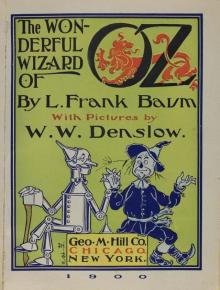 The Wonderful Wizard of Oz
The Wonderful Wizard of Oz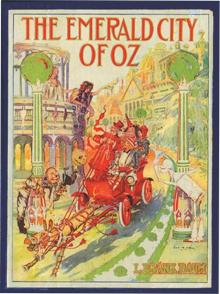 The Emerald City of Oz
The Emerald City of Oz The Story of Peter Pan, Retold from the fairy play by Sir James Barrie
The Story of Peter Pan, Retold from the fairy play by Sir James Barrie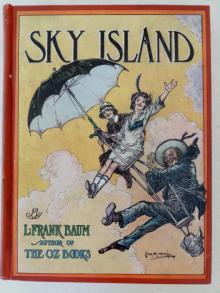 Sky Island
Sky Island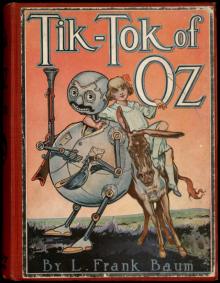 Tik-Tok of Oz
Tik-Tok of Oz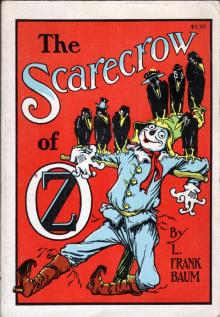 The Scarecrow of Oz
The Scarecrow of Oz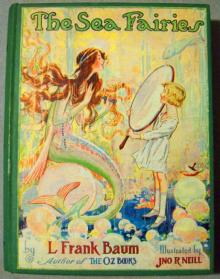 The Sea Fairies
The Sea Fairies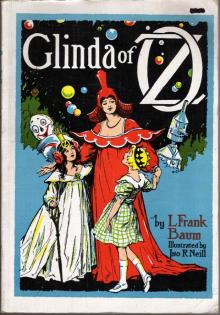 Glinda of Oz
Glinda of Oz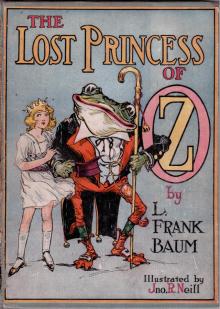 The Lost Princess of Oz
The Lost Princess of Oz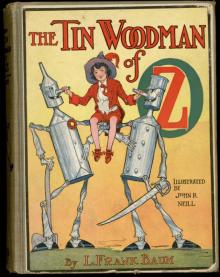 The Tin Woodman of Oz
The Tin Woodman of Oz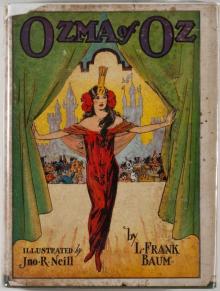 Ozma of Oz
Ozma of Oz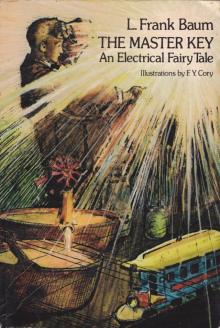 The Master Key
The Master Key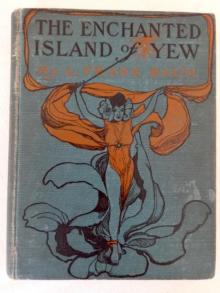 The Enchanted Island of Yew
The Enchanted Island of Yew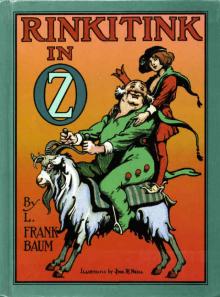 Rinkitink in Oz
Rinkitink in Oz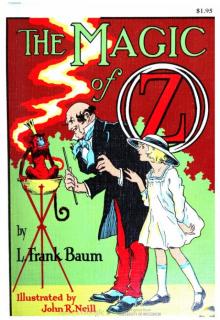 The Magic of Oz
The Magic of Oz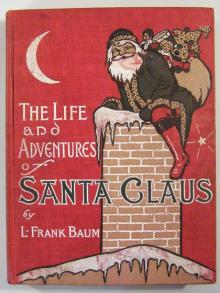 The Life and Adventures of Santa Claus
The Life and Adventures of Santa Claus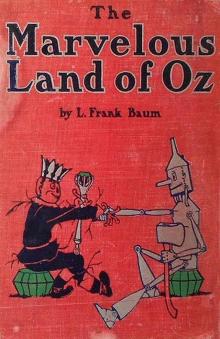 The Marvelous Land of Oz
The Marvelous Land of Oz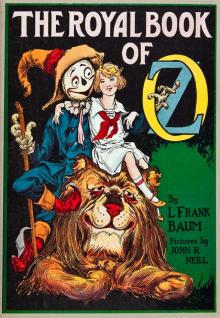 The Royal Book of Oz
The Royal Book of Oz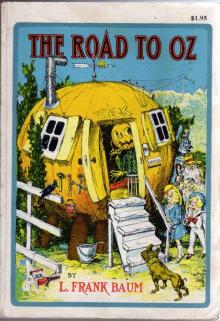 The Road to Oz
The Road to Oz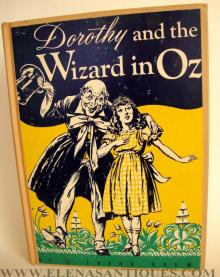 Dorothy and the Wizard in Oz
Dorothy and the Wizard in Oz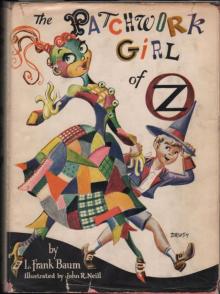 The Patchwork Girl of Oz
The Patchwork Girl of Oz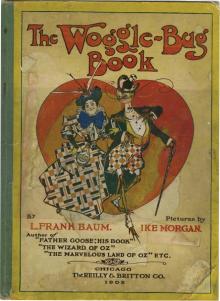 The Woggle-Bug Book
The Woggle-Bug Book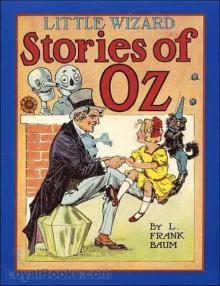 Little Wizard Stories of Oz
Little Wizard Stories of Oz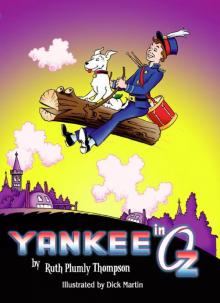 Yankee in Oz
Yankee in Oz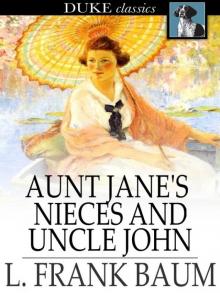 Aunt Jane's Nieces and Uncle John
Aunt Jane's Nieces and Uncle John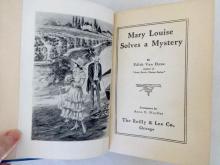 Mary Louise
Mary Louise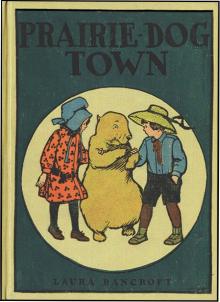 Prairie-Dog Town
Prairie-Dog Town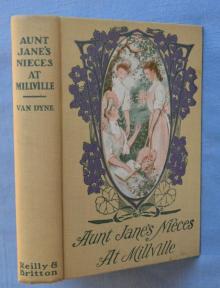 Aunt Jane's Nieces at Millville
Aunt Jane's Nieces at Millville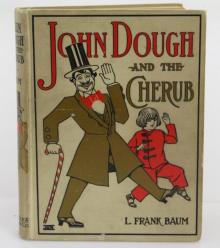 John Dough and the Cherub
John Dough and the Cherub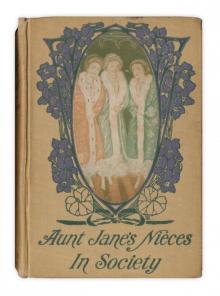 Aunt Jane's Nieces in Society
Aunt Jane's Nieces in Society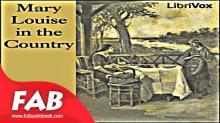 Mary Louise in the Country
Mary Louise in the Country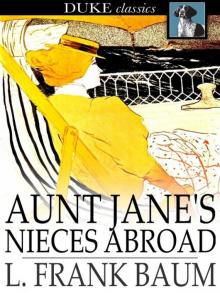 Aunt Jane's Nieces Abroad
Aunt Jane's Nieces Abroad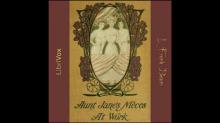 Aunt Jane's Nieces at Work
Aunt Jane's Nieces at Work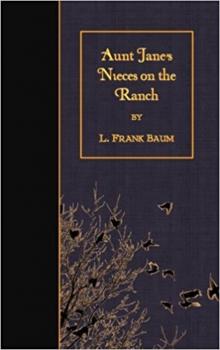 Aunt Jane's Nieces on the Ranch
Aunt Jane's Nieces on the Ranch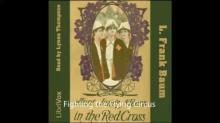 Aunt Jane's Nieces in the Red Cross
Aunt Jane's Nieces in the Red Cross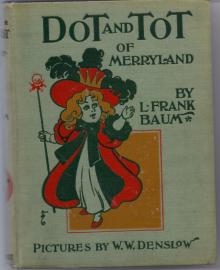 Dot and Tot of Merryland
Dot and Tot of Merryland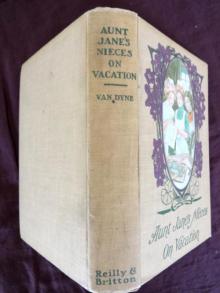 Aunt Jane's Nieces on Vacation
Aunt Jane's Nieces on Vacation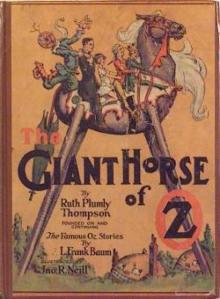 The Giant Horse Of Oz
The Giant Horse Of Oz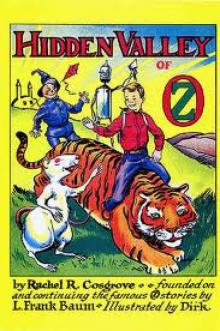 The Hidden Valley of Oz
The Hidden Valley of Oz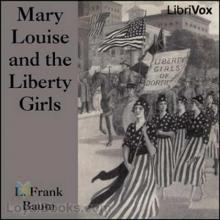 Mary Louise and the Liberty Girls
Mary Louise and the Liberty Girls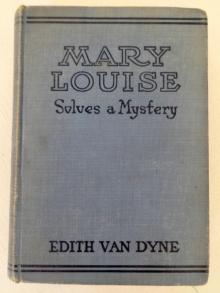 Mary Louise Solves a Mystery
Mary Louise Solves a Mystery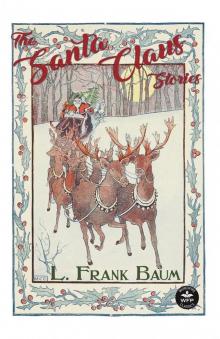 The Santa Claus Stories
The Santa Claus Stories Aunt Judith: The Story of a Loving Life
Aunt Judith: The Story of a Loving Life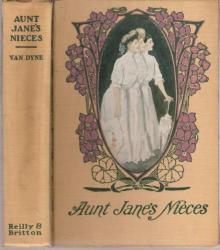 Aunt Jane's Nieces
Aunt Jane's Nieces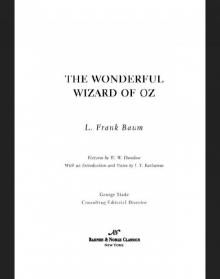 Wonderful Wizard of Oz (Barnes & Noble Classics Series)
Wonderful Wizard of Oz (Barnes & Noble Classics Series) Oz, The Complete Collection
Oz, The Complete Collection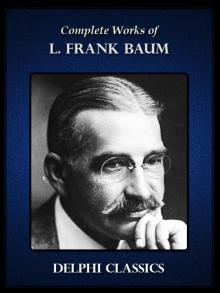 Complete Works of L. Frank Baum
Complete Works of L. Frank Baum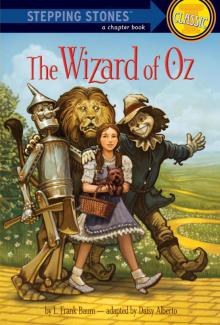 The Wizard of Oz
The Wizard of Oz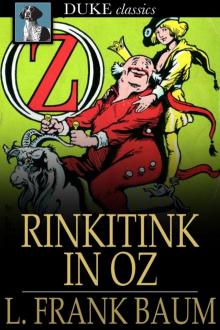 Oz 10 - Rinkitink in Oz
Oz 10 - Rinkitink in Oz